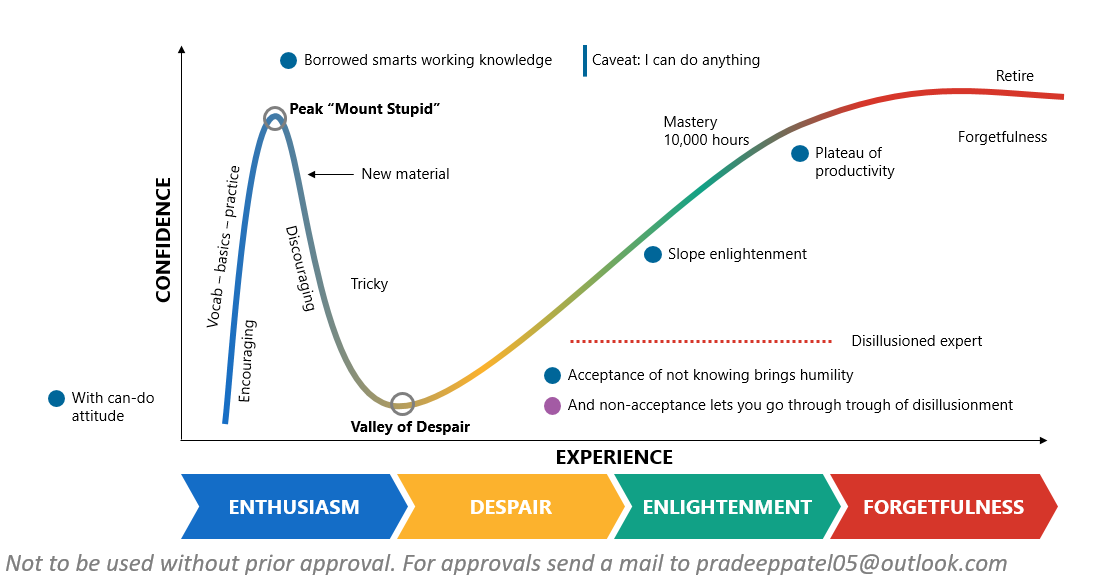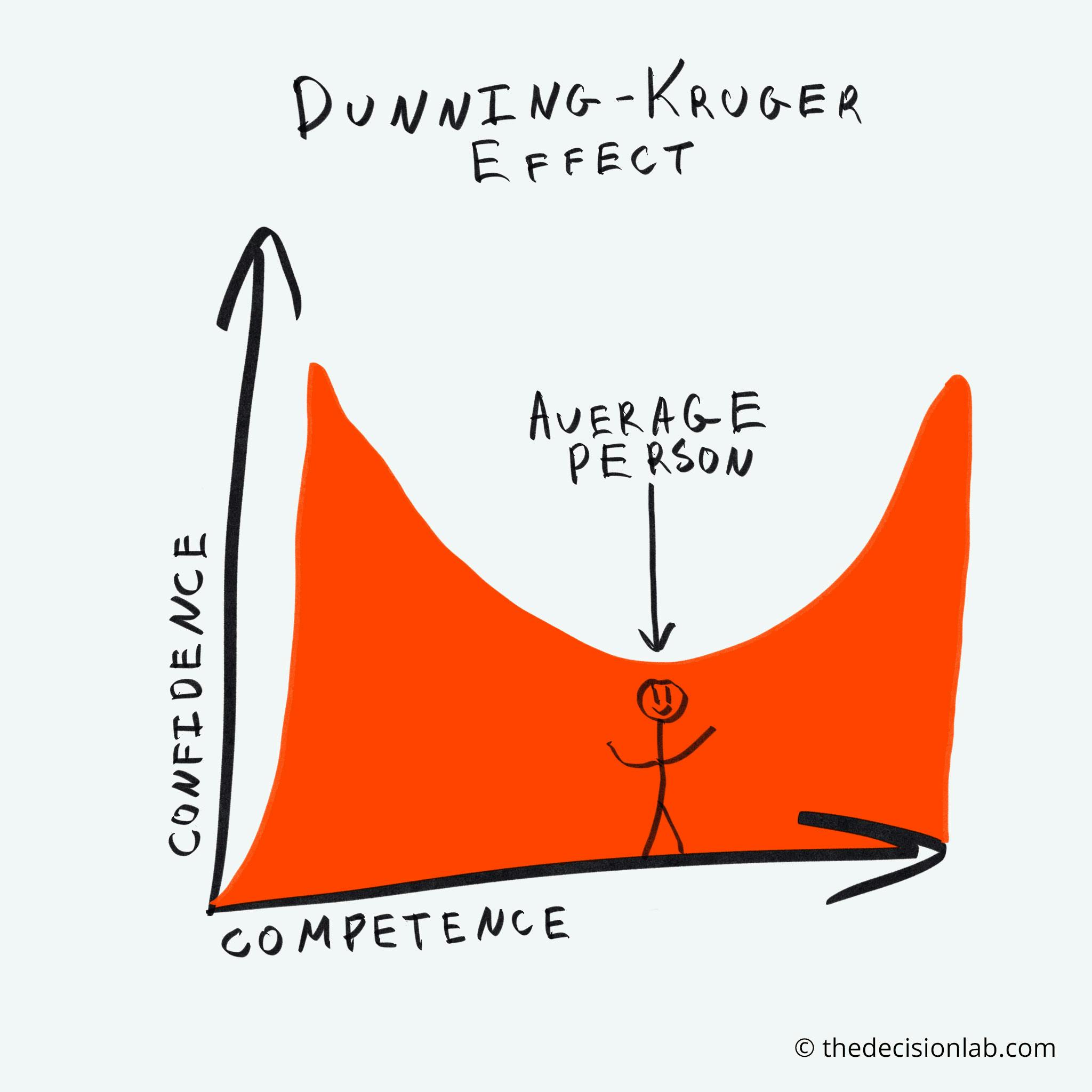- Hetvi Kapadia
- Posts
- Why We Think We're Smarter Than We Are?
Why We Think We're Smarter Than We Are?
The Confidence-Competence Gap
While enagaing in a masterclass, I recently came across the article of Pradeep Patel on The Dunning Kruger Effect. It discusses a cognitive bias that explains the illusion of competence when individuals start learning something new, only to realize their lack of knowledge as they progress.
Let's Delve Deeper into the Topic!
What is Dunning Kruger Effect?
The Dunning-Kruger Effect is a fascinating psychological phenomenon that highlights the often-counterintuitive relationship between competence and confidence.
The Dunning-Kruger effect occurs when a person’s lack of knowledge and skills in a certain area cause them to overestimate their own competence. By contrast, this effect also causes those who excel in each area to think the task is simple for everyone and underestimate their relative abilities as well.
It was named after social psychologists David Dunning and Justin Kruger, who conducted research on this cognitive bias.
Some key thoughts on the Dunning-Kruger Effect
Competence vs. Confidence: The core idea behind the Dunning-Kruger Effect is that people tend to overestimate their competence when they have limited knowledge or experience in a particular area. This overestimation is often accompanied by high levels of confidence. In contrast, those with greater expertise may underestimate their abilities and exhibit lower confidence.
Two Phases: The Dunning-Kruger Effect is often described in two phases:
Mount Stupid: In this phase, individuals with limited knowledge or skills believe they are highly competent. They lack the experience to recognize the complexity of the subject matter, leading to unwarranted confidence.
Valley of Despair: As individuals gain more knowledge and experience, they start to realize how much they don't know. This can lead to a decrease in confidence and a sense of being overwhelmed by the complexity of the topic.
Universal Applicability: The Dunning-Kruger Effect can be observed in various aspects of life, from academic performance and professional expertise to everyday decision-making. It's not limited to any specific domain.
Implications for Learning: Understanding the Dunning-Kruger Effect can be valuable for learners. It highlights the importance of humility and the willingness to acknowledge one's limitations. Those who recognize their initial overconfidence are often more motivated to seek out knowledge and improve their skills.
Communication and Leadership: The Dunning-Kruger Effect also has implications for leadership and teamwork. Leaders who are aware of this phenomenon can better assess the strengths and weaknesses of team members, fostering a more productive and collaborative environment.
Continuous Growth: Overcoming the Dunning-Kruger Effect requires a commitment to continuous learning and self-awareness. It's a reminder that knowledge is vast, and there's always more to discover.
Balance in Self-Evaluation: Striking a balance between confidence and competence is key. While it's important not to be paralyzed by self-doubt, it's equally important not to be overly confident without a solid foundation of knowledge and experience.
In essence, the Dunning-Kruger Effect serves as a reminder of the complexities of human cognition and the importance of self-awareness in our pursuit of knowledge and expertise. Recognizing this bias can lead to more effective learning, better decision-making, and improved interactions with others.
Read more on the topic with these articles!


Reply